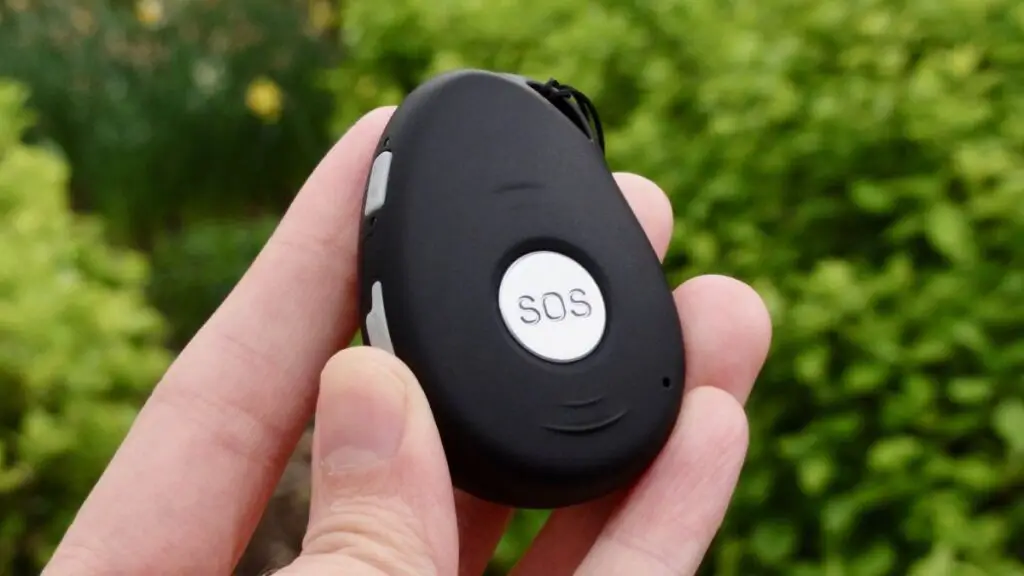Introduction
Do Cars Have GPS Trackers: The integration of technology into everyday objects continues to shape our lives in unexpected ways. One such technological advancement that has become almost ubiquitous is the Global Positioning System, or GPS, which has found its way into a multitude of applications, including smartphones, navigation systems, and even vehicles. The question of whether cars are equipped with GPS trackers has become a topic of interest and discussion.
As we delve into this subject, we’ll explore the reasons behind the inclusion of GPS trackers in cars, their functionalities, potential benefits, and the keyless entry considerations surrounding privacy and security in an era where our movements can be digitally traced and monitored. At its core, a GPS tracker in a car utilizes signals from a network of satellites to pinpoint the vehicle’s exact location with remarkable accuracy. Originally designed for military use, GPS technology has now permeated civilian life, enhancing our daily routines.
From offering turn-by-turn navigation to helping us locate nearby services, restaurants, and attractions, GPS-equipped cars have ushered in a new era of convenience and efficiency on the roads. However, the presence of GPS trackers in vehicles has sparked discussions around privacy and data security. As these trackers collect information about a car’s movements, it raises questions about who has access to this data, how it’s used, and the potential implications for personal privacy.

Do all cars have GPS tracking?
Many cars have GPS navigation systems that provide turn-by-turn directions and real-time traffic updates. These systems use GPS data to determine the car’s location and provide accurate recommendations to the driver. While not all cars have GPS trackers, they are becoming increasingly common.
While not all cars come equipped with GPS tracking as a standard feature, it’s undeniable that the technology has become widely adopted across various vehicle types and models. High-end vehicles, such as luxury cars, often include built-in GPS navigation systems that provide drivers with turn-by-turn directions, real-time traffic updates, and points of interest. These navigation systems use GPS signals to accurately determine the vehicle’s location and provide valuable information to the driver.
GPS tracking enhances vehicle security, theft recovery, and commercial fleet management beyond navigation. Fleet operators, delivery services, and transportation companies use GPS tracking to monitor the locations of their vehicles in real time, optimize routes, and ensure timely deliveries. This technology has proven to be indispensable in enhancing operational efficiency and reducing costs.
Technology, consumer convenience, and industry needs promote car GPS tracking adoption. For consumers, having a GPS navigation system in their vehicle provides a sense of reassurance when traveling to unfamiliar places. It eliminates the need to rely solely on paper maps or external navigation devices, making journeys more convenient and efficient.
Which cars have GPS built in?
Best Vehicles with Navigation
- 2023 Toyota Prius Prime. Compare Model. Positives. Leads the pack in efficiency and all-electric range.
- 2023 Honda Accord. Compare Model. Positives.
- 2024 Mazda CX‑90. Compare Model. Positives.
- 2024 Toyota Grand Highlander. Compare Model. Positives.
- 2023 Toyota GR Corolla. Compare Model. Positives.
Seamless Integration: Cars equipped with built-in GPS systems seamlessly integrate with the vehicle’s infotainment system, providing a unified interface that offers navigation alongside other features like music, phone calls, and climate control.
Real-time Updates: Built-in GPS systems often receive real-time traffic updates, helping drivers avoid congested routes and reach their destinations faster.
Accuracy: Integrated GPS systems utilize the vehicle’s speed and direction information, leading to more accurate positioning and navigation instructions.
Points of Interest: These systems frequently offer information about nearby points of interest, such as restaurants, gas stations, and attractions, making it easier for drivers to find what they need on the go.
Voice Commands: Many built-in GPS systems support voice commands, allowing drivers to interact with the navigation system hands-free, enhancing safety while driving.
Can GPS be tracked if car is off?
Hardwired GPS trackers are hardwired into the car’s electrical system and can track the location even when the car isn’t running. However, they are difficult to install and may require a professional’s help. Portable GPS trackers are the most flexible, and you can move the device from car to car.
One straightforward way to block GPS tracking is to use physical signal blockers. These devices work by emitting radio frequency interference that disrupts the GPS signals, making it challenging for tracking devices to accurately determine your car’s location. However, keep in mind that using signal blockers may also interfere with legitimate GPS-based services, such as navigation systems, emergency services, and vehicle diagnostics.
GPS jamming devices are specifically designed to block GPS signals. While effective at disrupting tracking signals, the use of GPS jammers is illegal in many jurisdictions due to their potential to interfere with critical services like emergency response systems and navigation for other drivers.
Several smartphone apps and devices claim to help protect your privacy by blocking GPS tracking. These tools often provide options to disable location services on your phone, making it more challenging for tracking applications to gather your location data. While these solutions might offer some level of protection, they may not be foolproof against advanced tracking techniques.
There are specialized services and devices designed to detect and alert you to the presence of tracking devices in your vehicle. These systems use radio frequency scanners or other methods to identify any potential tracking devices. If you’re concerned about unauthorized tracking, this approach can help you identify and remove hidden trackers.
How do I block GPS tracking on my car?
Any electrically conductive metal will scramble a GPS device’s signals. The simplest, cheapest, and easiest option is to simply wrap the GPS device in aluminum foil whenever you want your location to remain hidden.
The first step in dealing with GPS tracking is to physically inspect your vehicle for any potential tracking devices. These can be discreetly placed under your car’s chassis or within the interior. Check common hiding spots such as wheel wells, under the dashboard, and even inside the seats. Remove any suspected tracking device. Tampering with someone else’s property might have legal ramifications, so act legally.
GPS signal jammers emit radio frequency waves that interfere with GPS signals, making it hard for tracking systems to find you. While these devices may work, several countries ban GPS jammers because they can disrupt emergency response systems.
Apps that block GPS monitoring on smartphones claim privacy. These tools often allow you disable phone location services, making location data collection tougher for monitoring apps. These apps may prevent contemporary tracking, but not always.
Does Honda have GPS tracking?
The HondaLink® app Find My Car feature is simple to use and makes it easy to locate your parked car in crowded or unfamiliar places. The app uses GPS to direct you to your car.
Navigation: Many Honda cars have GPS navigation systems that provide turn-by-turn directions, traffic updates, and points of interest.
Find My Car: Use the HondaLink® app on your smartphone to remotely find your parked vehicle.
Stolen Vehicle Locator: HondaLink®-equipped Honda models can help law enforcement locate stolen vehicles.
Geofencing: Some HondaLink® services let you specify geographical boundaries for your vehicle and receive alerts when it enters or leaves them.
The availability of these features can differ from model to model and region to region. Higher trim levels and more recent model years tend to offer more advanced HondaLink® features, including GPS tracking capabilities. You should check with your local Honda dealership or the Honda website to see what amenities are available for your desired model.
Can a cell phone detect a GPS tracker?
Yes, there are many apps that can detect if a GPS tracker has been installed on your cell phone. If you have an Android phone you can download Certo Mobile Security for free from the Play Store and quickly scan your phone for GPS tracking apps and other malware.
Some smartphone apps can detect GPS tracker and other RF signals. These apps transform your phone into an RF scanner, letting you search for strange signals. These programs can help find hidden RF devices, but they may also detect other electronic signals.
A GPS tracker providing data could drain your phone’s battery faster. While this isn’t certain, monitoring your phone’s battery consumption and looking for inexplicable drops can help.
GPS trackers can link to devices via Bluetooth or Wi-Fi. Your phone may detect GPS tracker signals on these channels during Bluetooth or Wi-Fi scans. Bluetooth and Wi-Fi scans detect connected or broadcasting devices more often.
Unexpected notifications, pop-ups, or behavior on your phone, such as connections to strange devices, may indicate a GPS tracker. This may happen if the tracker tries to connect to your phone for data transmission.
How long do GPS trackers last?
For some wired GPS trackers, as long as they are well maintained and installed, the locator can be used continuously. If you want to use them for 5-6 years, this is no problem. Some of the more advanced manufacturers may try to use better, more durable chips, such as power protection.
Regular Usage: Battery-powered GPS trackers typically last anywhere from a few days to several weeks on a single charge, depending on how frequently they transmit data and the capacity of the battery. If the tracker is set to transmit location data frequently, the battery will drain faster.
Low-Power Modes: Some trackers offer low-power modes that extend battery life. In these modes, the tracker may transmit location data less frequently, conserving energy and allowing the device to last longer between charges.
Standby Time: When the tracker is not actively transmitting data, it might enter a standby mode that conserves battery. In standby mode, the tracker can last longer, potentially up to several months, before requiring a recharge.
Vehicle: Monitoring and fleet management use hardwired GPS trackers that are powered by the vehicle. If linked to a solid power source, these trackers can run continually without recharging or battery replacement.
Maintenance: The lifespan of hardwired GPS trackers is more dependent on the overall durability of the device and the quality of the components. High-quality trackers can last several years or more before needing replacement.
How does a GPS tracker work in a car?
GPS trackers use satellites to locate. The tracker employs trilateration to estimate latitude, longitude, elevation, and time by calculating its distance from three or more GNSS satellites.
Usage Intensity: The more frequently a GPS tracker transmits data, the faster its battery will deplete. Adjusting the transmission frequency and power settings can impact how long the tracker lasts between charges.
Quality of Components: The quality of the battery, internal circuitry, and other components plays a role in how long the tracker functions reliably.
Environmental Conditions: Extreme temperatures and harsh environmental conditions can impact the performance and lifespan of a GPS tracker.
The lifespan of a GPS tracker varies based on its type, usage, and quality. Battery-powered trackers can last from a few days to several weeks, while hardwired trackers connected to a vehicle’s power source can last for years.
Solar-powered trackers can operate for extended periods if exposed to sufficient sunlight. To determine the exact lifespan of a specific GPS tracker, it’s best to refer to the manufacturer’s specifications and guidelines.
It’s essential to consult the manufacturer’s specifications and guidelines for accurate information on the expected lifespan of a specific GPS tracker model. Manufacturers often provide estimates based on typical usage scenarios, transmission frequencies, and power-saving settings.

Conclusion
The presence of GPS trackers in cars exemplifies the profound impact of technology on our everyday experiences. These simple devices, powered by satellite signals, have made vehicles intelligent companions that guide navigation, streamline logistics, and improve communication. As our world gets more interconnected, GPS trackers demonstrate our desire for efficiency, ease, and better transportation.
To achieve this balance, we must address the ethical implications of tracking our movements and responsibly manage the data generated by these devices. The emergence of GPS technology in the automotive sector reflects broader discussions over technology’s place in our lives. It reminds us to protect our privacy and individuality while enjoying convenience and efficiency. GPS trackers on cars represent progress, accountability, and the ongoing dialogue between technology’s promise and our ideals.

